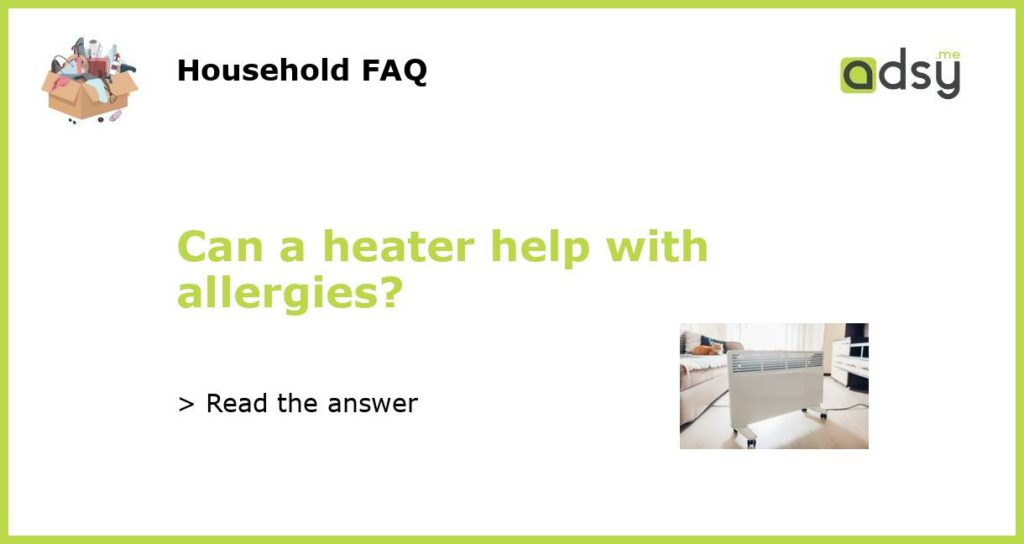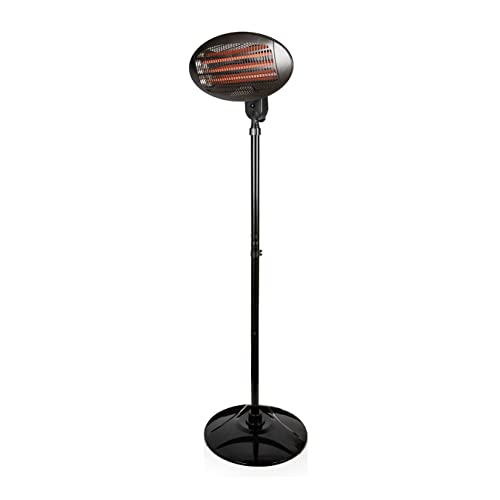Can using a heater help with allergies?
Many people suffer from allergies, and they are constantly searching for ways to alleviate their symptoms. One common question that often arises is whether or not using a heater can help with allergies. In this article, we will explore this topic and provide some insights into how a heater can potentially help with allergies.
Understanding allergies and their triggers
Before we delve into whether or not a heater can help with allergies, it is important to understand what allergies are and what triggers them. Allergies are an overreaction of the immune system to substances that are typically harmless to most people. These substances, known as allergens, can be found in various forms such as pollen, dust mites, pet dander, and mold spores. When a person with allergies comes into contact with these allergens, their immune system responds by releasing chemicals that cause symptoms such as sneezing, itching, and congestion.
The potential benefits of using a heater for allergies
While a heater cannot directly eliminate allergens from the air, it can offer some benefits that may help alleviate allergy symptoms. One potential benefit is that using a heater can dry out the air in your home. Many allergens thrive in humid environments, so reducing the humidity levels can help inhibit their growth. Additionally, a heater can also increase the overall temperature in your home, which can help kill off certain types of allergens like dust mites.
Choosing the right type of heater
Not all heaters are created equal when it comes to helping with allergies. Some types of heaters, such as radiant heaters, can actually worsen allergy symptoms by circulating allergens in the air. On the other hand, some heaters, like electric heaters, do not produce any byproducts that can worsen allergies. When selecting a heater, it is important to consider factors such as the type of heater, its filtration system, and its ability to maintain a consistent temperature.
Other strategies to complement heater use
While using a heater can offer some benefits for allergies, it is important to note that it should not be the only strategy employed. Here are some other strategies that can complement the use of a heater to help alleviate allergy symptoms:
- Air purifiers: Using an air purifier can help remove allergens from the air, complementing the drying effect of the heater.
- Mold prevention: Taking steps to prevent mold growth, such as fixing leaks and controlling humidity levels, can help reduce allergens in your home.
- Pest control: Implementing pest control measures can help eliminate pests that can trigger allergies, such as cockroaches and dust mites.
- Seasonal allergy management: For individuals with seasonal allergies, it is beneficial to follow strategies specific to the allergens present during that particular season. This can include things like keeping windows closed, staying indoors during peak pollen times, and regularly washing bedding.
- Regular cleaning: Vacuuming regularly, using hypoallergenic bedding, and dusting surfaces can help reduce exposure to allergens.
It is important to remember that allergies vary from person to person, and what works for one individual may not work for another. Consulting with a healthcare professional or allergist can provide personalized advice and recommendations to help manage allergies effectively.






